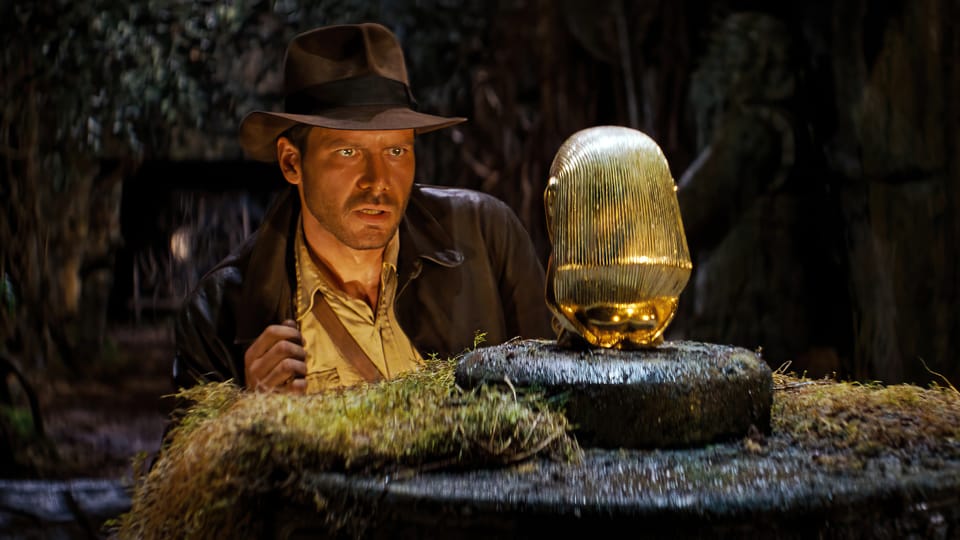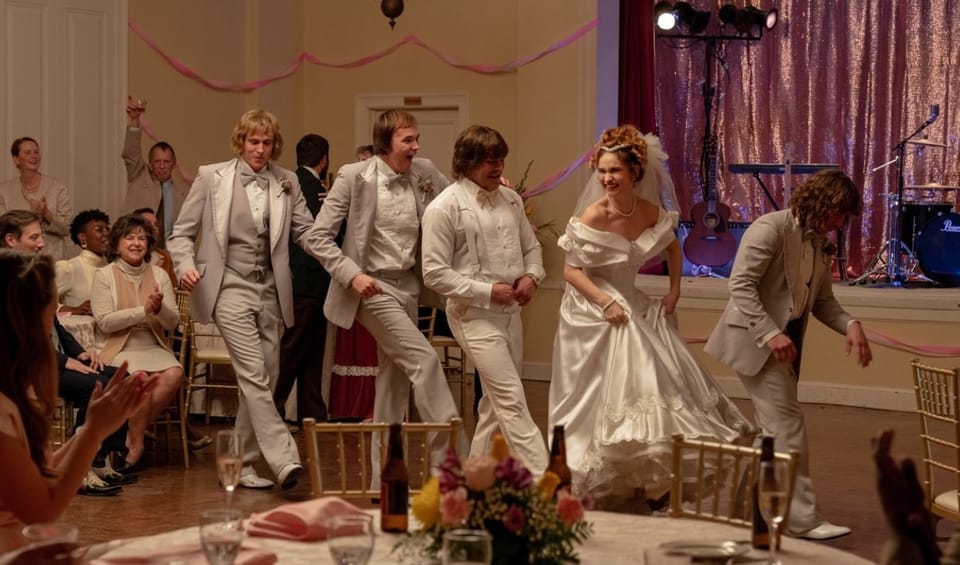The three wants of a character.
Dig deeper into the character's path to genuine change by examining these three wants.

The Story and Plot Weekly Email is published every Tuesday morning. Don't miss another one.
I am currently rewriting an older screenplay of mine. It's not bad, I've optioned it a few times over the years, but the concept is better than the execution.
The last time I made any changes to it was 2008, and those revisions were purely superficial.
But now I am digging in and uprooting some things.
A big part of the rewrite is the third act, and in particular, how the story resolves with the sacrifice that completes the transformation.
The protagonist makes a choice, but it's not a hard choice.
Any one of us would likely make it, so it doesn't feel like a sacrifice at all. Their old self and their new self are not in conflict.
It is the events of the story, rather than the emotions derived from them, that change the protagonist. Facts change, so their opinions change.
This is fine for policy debate, but we're not here for that. We want emotion. We want to feel something.
Transformation is emotional and spiritual, not just factual.
A character is defined by their wants. That is, what they want, and what they're willing to do to get it.
To dig deeper into a character, and give this character a path to genuine change, we define those wants as:
- Their physical want.
- Their emotional want, and…
- Their spiritual want.
In doing so, we outline the story.
I don't like the term "character arc" for just this reason.
It treats the character transformation as something separate from the story.
How I work and how I teach is that the transformation of the character IS the story.
Character is story and story is character.
The transformation is not something you should be tacking on to the plot as an afterthought. That process makes a difficult job more difficult, and the audience will usually smell the stench of insincerity.
And yet, a commercial story is plot focused.
If you want to sell a screenplay, you almost certainly need a plot-focused dramatic question.
"Will the protagonists accomplish their mission?"
"Will the couple get together?"
In addition, you need a high concept that is playable and exploitable and is the focus of the movie.
These things create a lot of activity on the page and they're crowding out the actual story (the transformation.)
But we also know that for any screenplay, it is the story — the emotional payoff — that gives it lasting value. It is our emotional reaction that creates a deeper relationship with the material.
If we want our story to succeed at the highest level…
We need to unify all these elements.
Some of the biggest mistakes writers make:
They break character down solely to what the character physically wants and what the character needs.
While this approach isn't wrong, and it can certainly work, it's limited.
It reduces a character's wants to external and internal, treating the emotional and spiritual as one and the same.
They may also see the external want and the internal need as unrelated.
Neither affects the other, yet at the end of their screenplay both are satisfied.
Unfortunately, the audience isn't.
In addition, they will often see the internal need as a "flaw" that must be solved.
"What is the character's flaw?" They will ask.
And they will create one. Out of thin air. Because the character needs a flaw, right?
The character will then have a negative character trait at the beginning and by the end the switch is flipped and the trait is gone.
A step in the right direction.
The great Michael Arndt brings a more productive approach by describing these elements as "the stakes."
- Physical stakes.
- Emotional stakes.
- Philosophical stakes.
In his most famous video (amongst screenwriters), he talks about the emotional satisfaction of resolving all three in what he calls the "killer ending."
He is, of course, right.
But how do we do this ourselves?
Let alone how do we do it on a consistent basis?
And while it is a little embarrassing to differ with one of our great teachers, I do differ with him on semantic terms.
But the semantics here make a difference as I think it simplifies and makes our choices easier.
What Arndt describes as the "philosophical stakes" is the transformation itself.
He describes it as "philosophical", I believe, because it embodies the thematic argument of the piece. Fair enough.
But again, we are separating elements from the story when we should be unifying everything under that story.
So, if you view theme, as I do, as simply the "ideas and values that are rewarded or punished in the story" then the resolution of the philosophical stakes is simply the sacrifice that completes the transformation.
That is, yes, Luke Skywalker resolves the philosophical stakes by turning off the targeting computer, but more importantly, he completes his change. He has started his path towards becoming a Jedi.
What's the difference?
The difference is that you really don't need to worry about the philosophical stakes at all. Certainly not early on in your writing.
We do not want to make things more complicated for ourselves.
Simplify your choices instead.
Worry about the character transformation (the story) and the philosophical stakes will take care of themselves.
Focus on the character's wants.
The character's want will map out the transformation and unify it with all the concept, plot and stakes around it.
The character's physical want.
This is the problem they are trying to solve. They may want to defeat the Empire, go the distance, get the green card, or get their husband's signature on the divorce papers so they can remarry.
The character's emotional want.
This is most often the relationships the protagonist has with other people, namely the stakes character, the agent of change, and/or any relationship the audience is most emotionally invested in.
The character's spiritual want.
This is the character's relationship with themselves and with life. Satisfying it, or, in the case of a tragedy, failing to satisfy this want is how the character resolves their transformation at the end.
They prove to themselves they're not a bum, they commit to The Force, or they realize where they belong and who they belong with.
These wants are intertwined in one unified story.
- The character has a problem. Their physical want is to solve this problem. Because of who they are, they initially lack the physical, emotional and spiritual tools to resolve the problem to the audience's satisfaction.
- Through Act 2 they will change. Their change will pivot off the relationships in their life, either by satisfying their emotional want, or the realization of this want shows them who they want to be.
- Knowing who they want to be allows for a transformation that satisfies their spiritual want. In doing so, they become someone new.
- This new version of themselves, unlike who they were in Act 1, now has the physical, emotional, and spiritual tools to solve their physical want.
A lack of unity here is unsatisfying.
It is why a relationship as a reward for success falls flat. We've all seen it before. The good guy defeats the bad guy and then gets the girl for his trouble.
But we don't really care. It doesn't really mean anything to us.
Yet, when the relationship changes the character, and it gives them the strength to achieve significant things, a deeper meaning is felt.
This is because the relationships are the true achievement.
They are what gives all the other achievements in our story meaning. They must be instrumental, and built into the DNA of the story itself.
In the end, it is the emotional and spiritual wants that matter.
It is easy to forget what's important.
Plot is always so tempting. We get so busy filling out our structure with great scenes and sometimes getting everything to make sense can be a challenge.
And we forget to ask:
- Who is the agent of change?
- How do they change the protagonist?
- How is the resolution dependent on this change?
- What is the most important relationship in this story?
- How is it better (or worse) in the end?
We are telling one, single unified story, driven by the protagonist's three wants: physical, emotional, and spiritual.
The Story and Plot Weekly Email is published every Tuesday morning. Don't miss another one.
When you're ready, these are ways I can help you:
WORK WITH ME 1:1
1-on-1 Coaching | Screenplay Consultation
TAKE A COURSE
Mastering Structure | Idea To Outline




